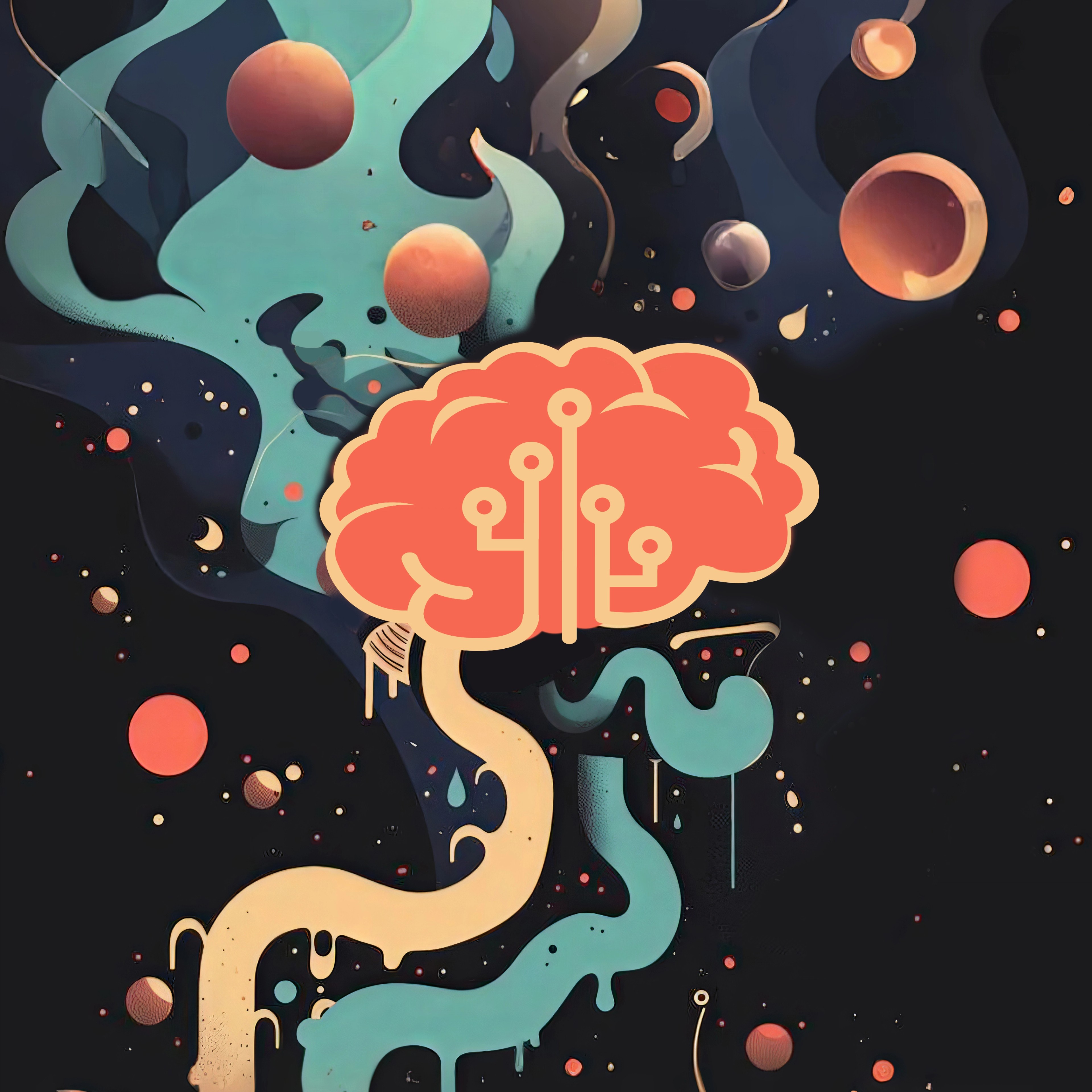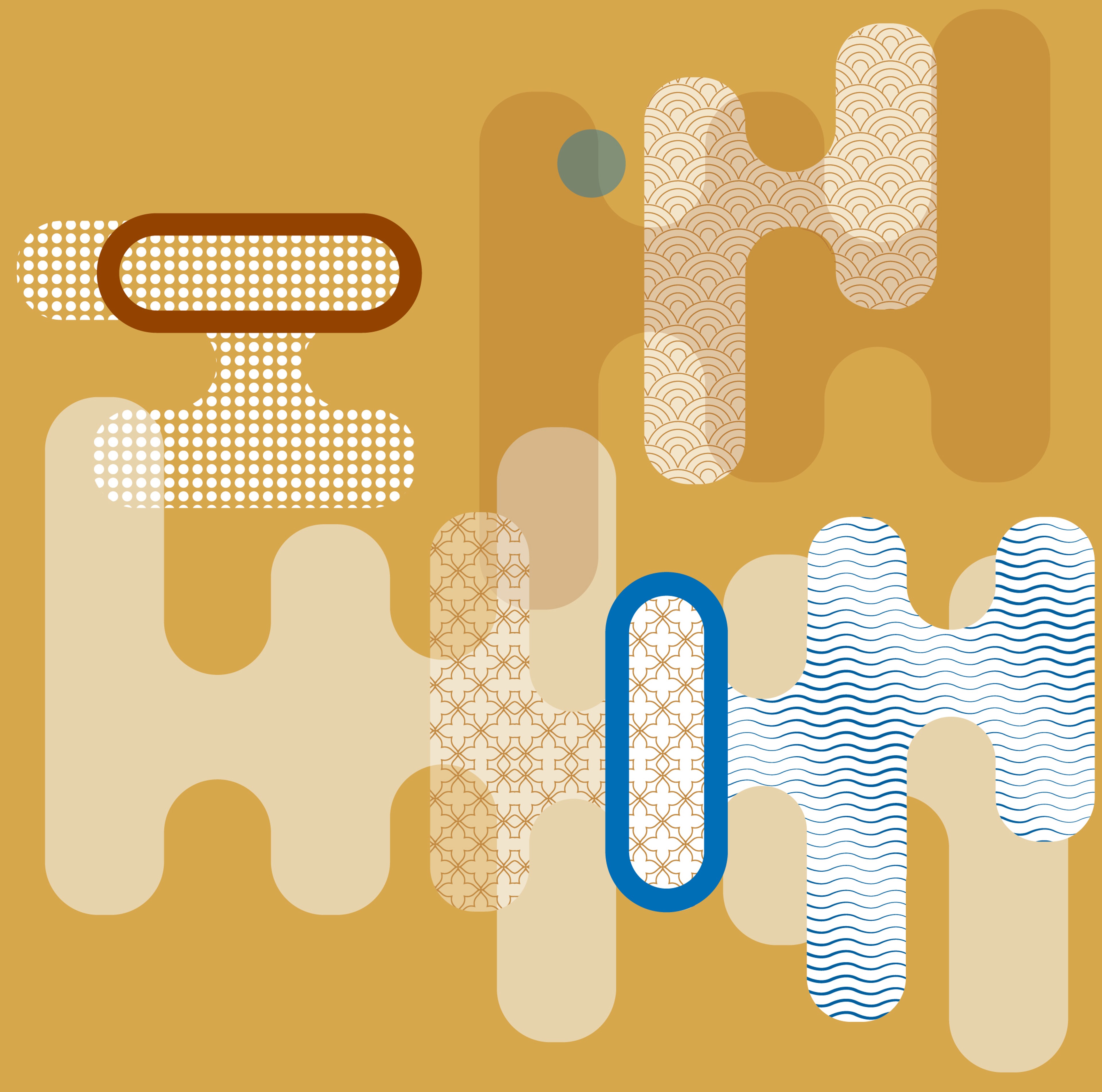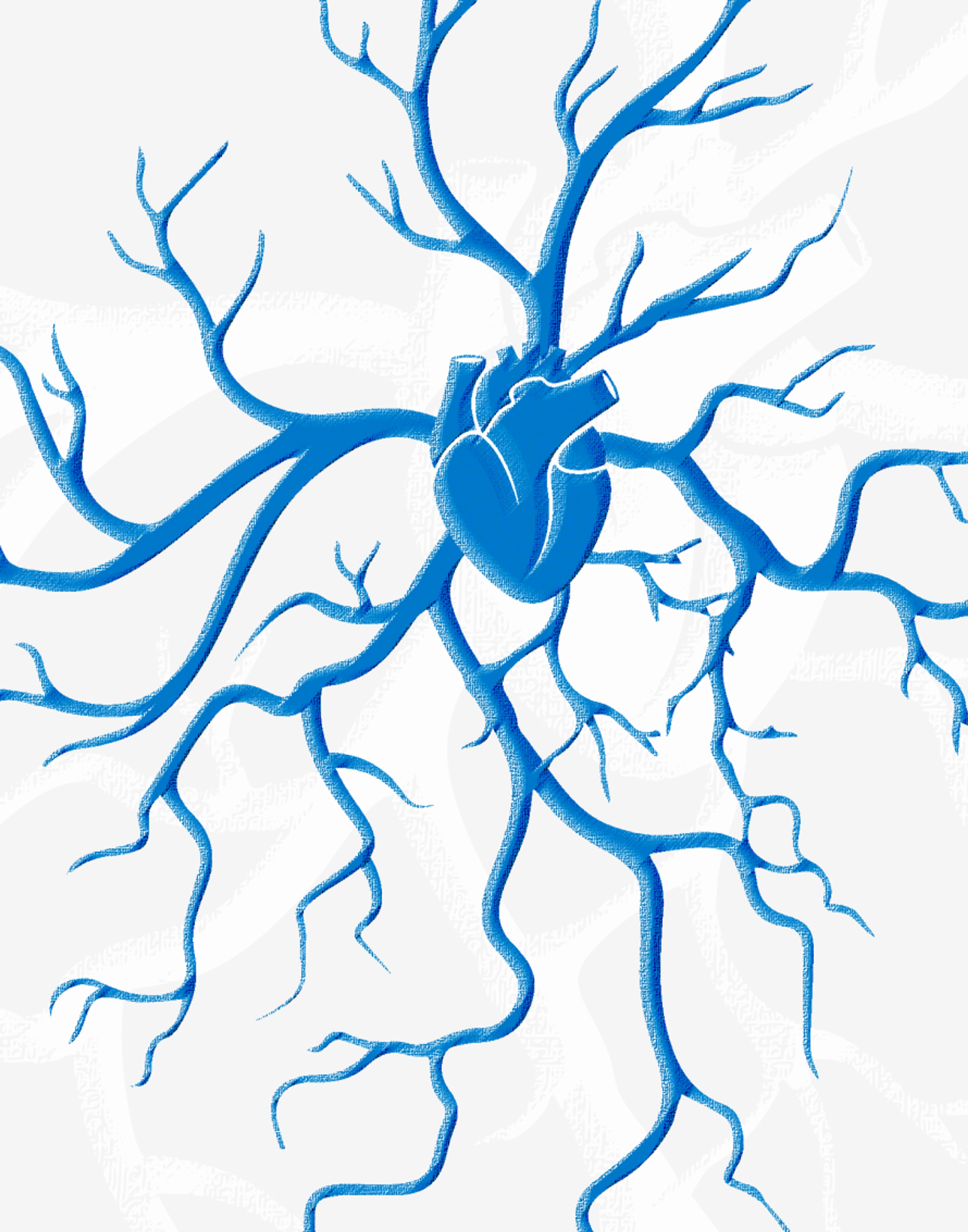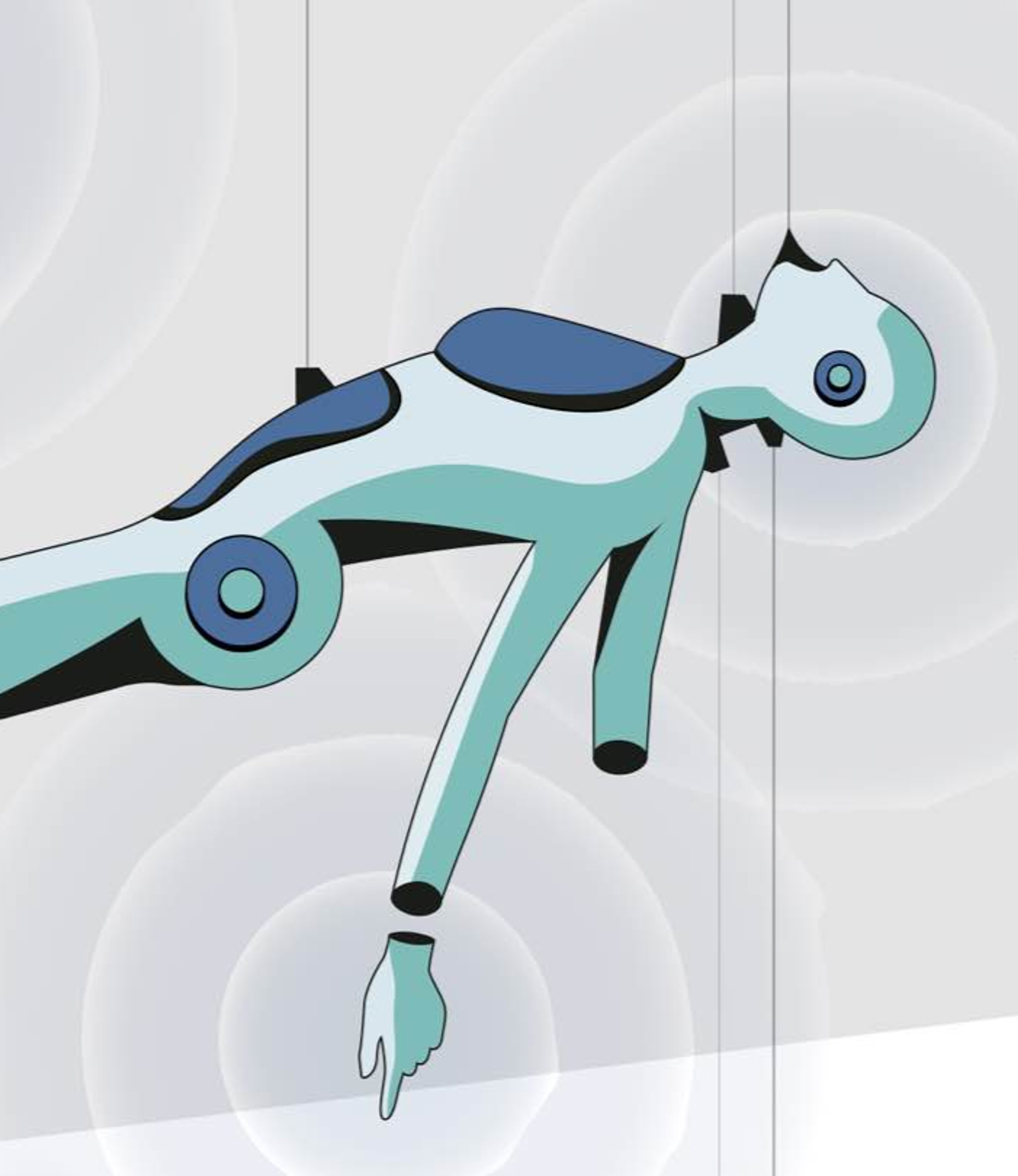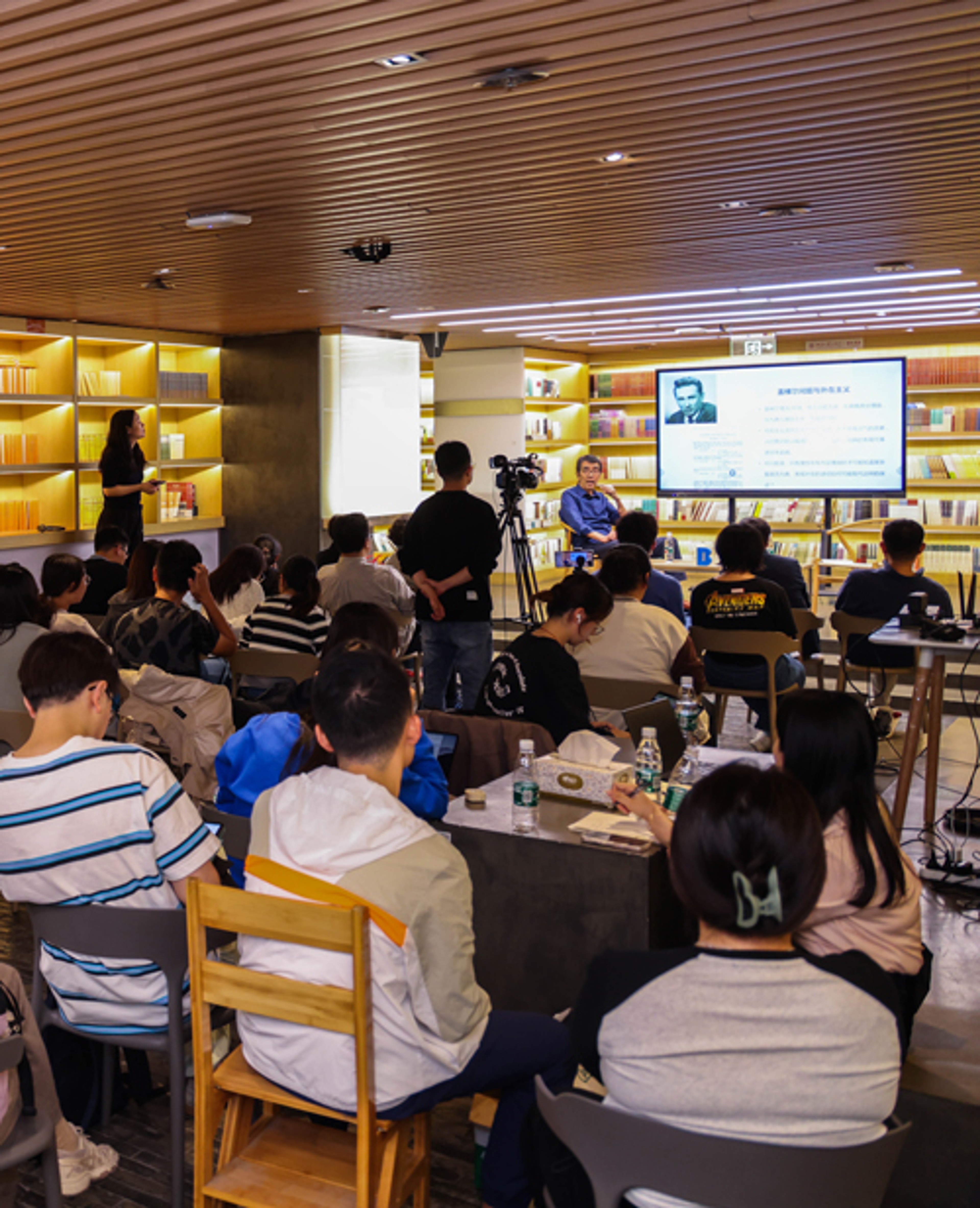Human Nature and Planetary Metaphysics

- Date: March 27, 2025
- Location: No. 54 Yannan Garden, Peking University, Beijing
On the afternoon of March 27, 2025, the 35th Berggruen Seminar “Human Nature and Planetary Metaphysics” was held at No. 54 Yannan Garden, Peking University. The lecture was delivered by Professor ZHAO Dingxin, Dean of the Institute for Advanced Studies in Humanities and Social Sciences at Zhejiang University and Max Palevsky Professor Emeritus of the University of Chicago, and was moderated by Professor BAI Shunong, Professor Emeritus of the School of Life Sciences at Peking University and a 2020–2021 Berggruen Fellow.
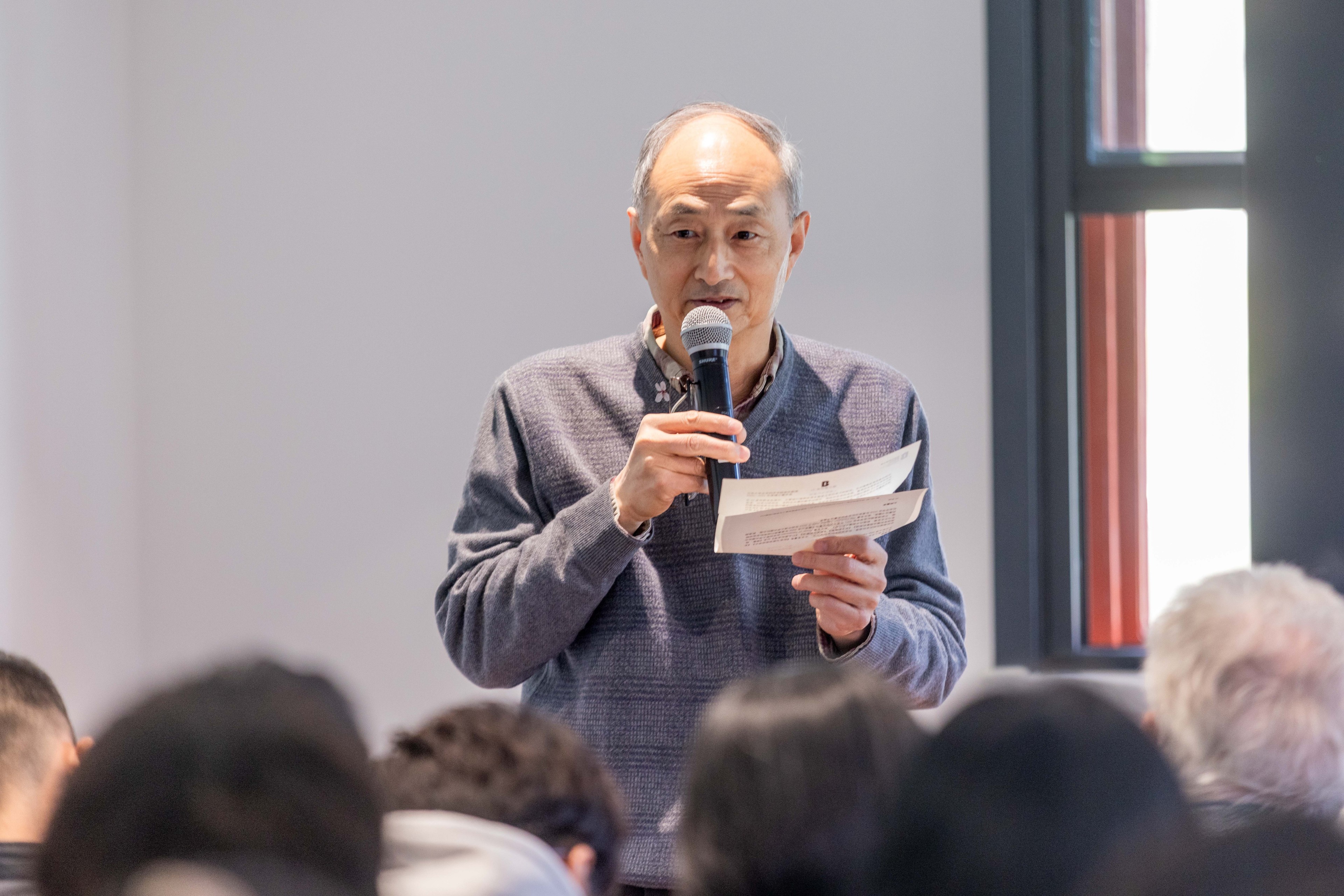
Facing a variety of pressing global crises, scholars across disciplines have sought to develop theoretical frameworks grounded in interdisciplinary perspectives. In this lecture, Professor Zhao discussed the concepts of the Anthropocene and the planetary, examining the structural mechanisms and causal forces that have shaped different phases of the development of both humanity and Earth. He has been endeavoring to provide the theoretical basis for solving these crises with interdisciplinary perspectives. In this lecture, Professor Zhao discussed the concepts of the Anthropocene and the planetary, along with the structural mechanisms and causal forces in different phases of the development of human beings and the Earth. To further advance de-anthropocentric thinking, he introduced the concept of “human nature” as a foundation for a new strategy aimed at addressing current crises, what he calls a “feasible utopia.” To promote de-anthropocentric thinking, he put forward the concept of “human nature,” through which a brand new strategy that may alleviate the current crisis is conceived, namely the “feasible utopia.”
The Anthropocene and the Planetary: An Attempt at De-anthropocentrification
As the Industrial Revolution progressed, human activities began to impact both the climate and ecosystems. Hence, since the 21st century, the concept of the Anthropocene has come into academic focus. This concept argues that global human activities, although relatively short in geological time, have become a geological phenomenon; thus, human beings have transcended natural geological processes and become a dominant force in shaping the Earth’s environmental systems.
Although this theory has stimulated extensive discussion in fields such as sociology and anthropology and is often used for social and political movements, it has not yet been universally recognized by geologists. The main reason lies in the fact that most of the time, the impact of human activities is difficult to accurately measure, particularly if it is considered on the scale of geological evolution. Based on the concept of the Anthropocene, the Berggruen Institute has further developed the concept of the planetary, or planetary metaphysics, which takes on greater theoretical significance.
The concept of the planetary emphasizes that human beings are neither different from nor independent of nature while recognizing that human beings have begun to understand the complex interdependency between their behavioral systems and nature. In this context, Professor Zhao vividly reveals how past anthropocentric thinking has led to an absolutist and erroneous understanding of the natural sciences, through the ambiguity in the artificial dichotomy in the definition of “pests/insects,” which further underlines the theoretical vitality of the proposal of the planetary in the process of de-anthropocentrification.
Specifically, scholars’ attempts at de-anthropocentrification can be traced back to three important historical events. The first was Nicolaus Copernicus’s heliocentrism, which argued that the Earth was no longer the center of the universe and marked the first attempt at de-anthropocentrification. The second was Charles Darwin’s theory of natural selection, which indicated the removal of God from the role of master and subject of creation, symbolizing the second phase of de-anthropocentrification. The third and latest attempt was the proposal of the concept of the planetary, which was significant in removing humanity’s position as the measure and master of the world.
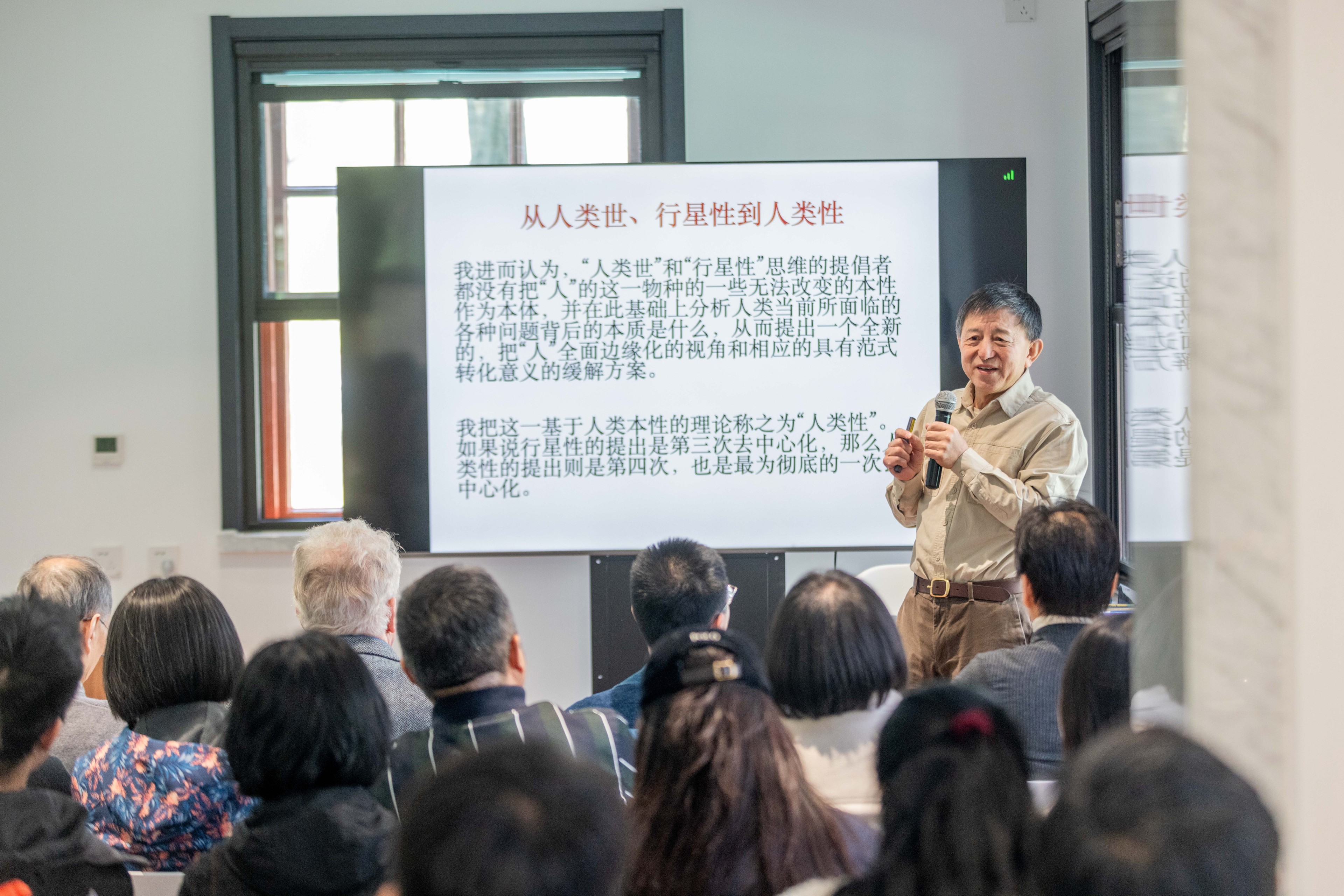
From this perspective, the concepts of the Anthropocene and the planetary, emerging as new attempts at de-anthropocentrification, not only emphasize the far-reaching and irreversible impacts of human activities on Earth; they also put forth a compelling reexamination of humanity’s role within natural systems, while having greater significance — conceptualizing and reframing previous discussions in the fields of biology, philosophy, and anthropology. At a practical level, they also highlight the inadequacy of environmental protection policies based on coordination between nation-states and multilateral member states in the international realm, including frameworks for action such as the Paris Climate Agreement.
However, these two concepts possess certain limitations: they merely point out the phenomenon but fail to analyze the essence in depth, while offering mostly conventional solutions. More importantly, these concepts overemphasize the agency of human beings in protecting the Earth and exaggerate the continuity and intensity of human impacts on the Earth, ignoring the high asymmetry between the forces of mankind and the Earth as well as its capacity for self-repair and renewal. That being said, on larger spatial and temporal scales, human activities may not have a fundamental impact on the Earth. In other words, advocates of the Anthropocene and planetary thinking have largely overlooked the ontological nature of the human species when analyzing the root causes of the problems currently faced by humanity. Only by fully marginalizing anthropocentrism can a truly paradigm-shifting and effective mitigating solution be proposed.
Based on this, Professor Zhao proposed the theory of “human nature” and the corresponding mitigating solution “feasible utopia” to address its inherent inadequacy. If the planetary marks the third phase of de-anthropocentrification, the proposal of “human nature” can be regarded as the fourth, and most complete, attempt.
Theoretical Background of Human Nature: Feedback Mechanisms and Causal Forces in Human Evolution
In order to understand “human nature,” it is necessary to first examine the causal relationships in the evolution of the universe and human beings, as well as its structure/mechanism. This mechanism can be understood as a set of causal relationships with fixed laws of interaction under certain conditions, which mainly include universal and ad-hoc mechanisms.
Compared with Darwin’s theorization of natural selection, Lamarck’s theory of evolution, although refuted by later scholars, possesses its own value by considering human evolution as the product of a positive feedback rather than a negative feedback mechanism. In this context, positive feedback refers to a system in which an increase in output or a boost in input leads to further enhancement of output and thereby a self-reinforcing cycle, but eventually, it could also lead to a loss of control of the system. Negative feedback, on the other hand, is the process by which a system’s output inhibits or reduces its input, resulting in the output being attenuated or stabilized. With this mechanism in place, the system will return to a state of equilibrium by counteraction, thus avoiding extreme changes.
Specifically, the evolution of structure/mechanism and causal forces on Earth can be roughly divided into three phases: physical (inorganic chemistry), biological (organic chemistry), and human (purpose or accumulation/revenge) phases. After the scattering of cosmic rays and the formation of stars, the chemical elements appeared as basic structures, while the purely physical mechanisms underwent a process of structural replication, expansion, and increasing complexity in response to specific environmental conditions, giving rise to virtually all causal relationships. With the slow combination and development of chemical elements, the Earth entered a completely new phase of biological/organic chemistry. During this process, the self-protective and replicative mechanisms acquired by these structures grew in importance, and negative feedback mechanisms dominated the evolutionary process.
In the final stage, the emergence of human beings brought about a large number of completely new and special causal relationships. Although the positive feedback mechanism, capable of reinforcing and consolidating its advantages, has come to dominate and exhibit self-reinforcing tendencies, Professor Zhao contends that the unstable nature in the development process of positive feedback regards it as an unintelligent rather than intelligent system, different from the negative feedback mechanism, which values and pursues equilibrium. In addition, the specificity of the human stage is also reflected in the looping mechanism in the thought process, the special mechanism of individualization and contextualization, as well as the phenomenon of tail-heavy effects formed by ad-hoc mechanisms largely concentrated at the tail end of this model. Additionally, under the highly heterogeneous distribution of social power, the more uneven the distribution of power is, the greater the uncertainty and harm brought by positive feedback, looping mechanisms, and special mechanisms, which lie at the tail of human society.
These problems not only constitute the ontological commitment of the concept of “human nature,” but also lead to the core problems faced by human beings in the process of development. Although human societies have proposed a variety of mitigating solutions, these mechanisms are essentially based on negative feedback, which is not sufficient to counterbalance the dominance of positive feedback mechanisms in human societies as a whole.
For example, the legal system is designed to curb social disorder by sanctioning non-compliance. However, as legal texts can be interpreted and manipulated by different actors, this negative feedback mechanism is often influenced by the imbalanced power structure and may even be abused or misappropriated to entrench irrational rules and ideologies, leading to exponential growth of negative consequences. Similarly, although the price mechanism can regulate supply and demand, over-reliance on the market cannot completely solve social problems such as income inequality, and may even exacerbate others such as social inequality, leading to more serious problems. While theoretically, multi-party democracy can maintain political stability by “balancing ambition with ambition,” if inter-party competition fails to adhere to the principle of loyal opposition, it may lead to social division and intensification of conflicts. In this context, while religion and philosophy can be seen as means of balancing human desires, the persuasive power of religious leaders and the coercive power of religious institutions have historically been sources of threat and violence.
In addition, collective memory can also be seen as an experience-based negative feedback mechanism. As the last means of negative feedback for human beings, the value of historical memory lies in preventing society from repeating past mistakes. However, Professor Zhao points out that collective memory is constrained by a threefold paradox: “forgetting is betrayal, remembering is inaccuracy, and pluralism is forgetting.” That is to say, under the influence of different ideologies and values, different interpretations of the same event lead to decentralization and localization of experience, while the competition of pluralistic ideas and the discussion environment under a high degree of liberalism do not guarantee that optimal ideas will become dominant and guide the direction of human development in the future.
The Proposition of a Feasible Utopia: The Traditional Mitigation Programs Offered by Humanity and Their Inadequacies
From Professor Zhao’s viewpoint, the positive feedback, looping, and special mechanisms which take up a dominant position, along with the increasing inequality of social power, constitute the core features of human nature. Against this background, while it is difficult to present a clear theoretical model of “feasible utopia” as a potential solution to current problems, it can be depicted through basic principles as follows.
Considering the risk that “absolute power will lead to absolute corruption,” the construction of a “feasible utopia” first requires the use of discrete social power to realize effective balances on centralized state power. While weakening the power of the nation-state, this option advocates a strengthened system of global governance with its role constrained to providing a few key global public goods to avoid excessive centralization of power. In addition, military power, as a coercive, centralized power, should be weakened to the point of assuming only police functions to maintain public security.
Second, similar to the price mechanism, the market mechanism, as a means of negative feedback, plays an important role in maintaining economic stability. However, this regulatory mechanism must be operated within a framework of environmental sustainability and social equity in order to seek a balance between economic growth, market confidence, and social stability.
At the same time, it is already an irreversible trend that repetitive, low- and medium-quality human labor is being replaced by rapidly developing IT and AI technologies. In this context, human beings should be engaged in activities such as culture, arts, or sports. These activities, which are less socially and environmentally destructive, can mitigate excessive competition and its negative impacts caused by positive feedback and looping mechanisms. However, as these social activities can give rise to new power structures, such as the rise of community celebrities and the expansion of their influence, or even the evolution of coercive, unequal power relations similar to religion, a feasible utopia must adopt a governance model centered on a medium-sized community — not too large to make governance too difficult or risk power concentration, nor too small to undermine the meaning and interest of social activities.
At the end of the lecture, Professor Zhao concluded that, after the emergence of humans, the planet gradually shifted from the self-regulating negative feedback causal model, as the Gaia hypothesis emphasized, towards the influence of social forces based on positive feedback mechanisms, which, in turn, are amplified by tail-heavy effects and inequalities embedded in existing power structures. While the linearity of positive feedback has brought countless practical benefits to human beings and enhanced their ability to dominate nature, the instability of positive feedback and its impacts keep humans bound by principled liabilities — i.e., retaliation of all kinds for their actions. This view is in a sense in line with the central claim of Taoist philosophy. However, given the uneven distribution of power in society and the characteristics of “human nature,” this principled liability, as a form of delayed negative feedback, is unable to fundamentally change the behavioral patterns guided by human nature. In this context, Professor Zhao emphasized that, despite the lack of “goals” and “teleological stages” in human history, the teleological character of cosmic development poses greater challenges to the future development of human beings, even beyond current knowledge and imagination.
Q&A Session
During the Q&A session, Professor Bai began by sharing his thoughts on the lecture. He pointed out the similarities between the planetary and “human nature” as proposed by Professor Zhao and his idea of a “life-based” civilization that he developed in 2020–2021, as a Berggruen Fellow researching “the evolution of human beings.” Compared with the “human-based” (worship of ancestors) and “divine-based” (worship of gods) civilizations that have appeared in history, the “life-based” civilization takes the law of life as the ultimate principle for human behavior. Although these concepts all aim to solve the problem of “what is a human being” and “how will human beings evolve,” the planetary achieves de-anthropocentrization from a transcendent, top-down approach, while “life-based” civilization emphasizes the primary principle that “human beings are also living creatures” to obtain a more down-to-earth analytical viewpoint.
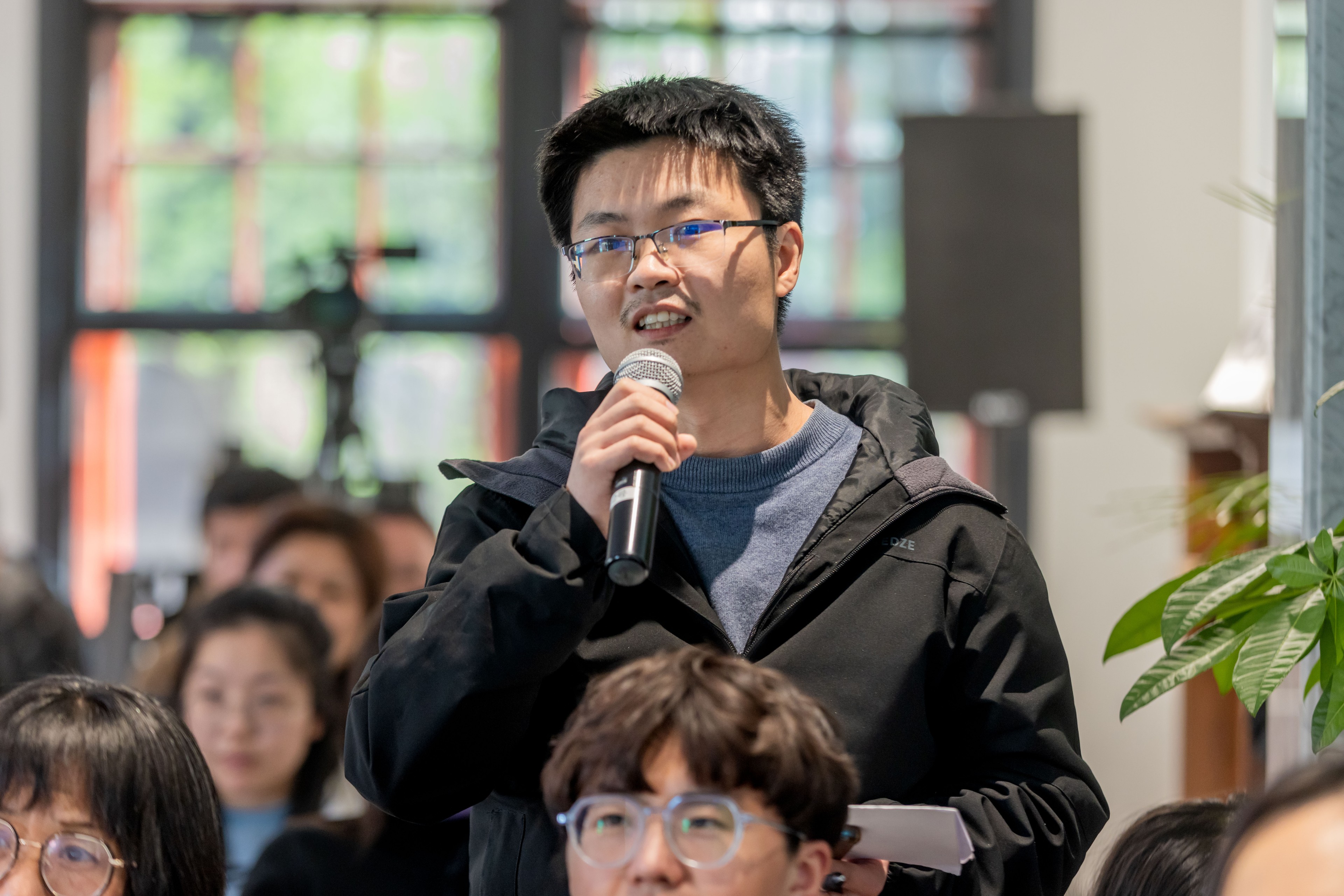
Among those in attendance, some audience members also asked the two professors to elaborate on the similarities and differences between the concepts of “human nature” and “life-based” civilization. In response, Professor Zhao agreed with Professor Bai that “human nature” is a heightened concept, as “life-based” emphasizes the biological nature of human beings, while “human nature” emphasizes “the nature of the differences between human beings and other creatures.” While the “life-based” concept is mainly related to the three main characteristics of human beings, namely, positive feedback, looping mechanism, and ad-hoc mechanism, it has not yet been fully considered in relation to social structure and the uneven distribution of social power. Based on this, Professor Zhao argued that there is a difference in the concept of life in “life-based” — whether it includes or excludes human society in discussion. Therefore, in order to deepen the understanding of the concept of “life-based” civilization, social structure and power should be included in the discussion.
Others in attendance also inquired about the ethical aspects of the role that human beings play in the construction of the planetary, and whether the new utopian feedback mechanism could transcend human-centric environmental ethics and generate a fundamental impact on the moral system of mankind. In this regard, Professor Zhao pointed out that ethics can be incorporated into the religious dimension of discussion. However, ethics is the least secure negative feedback mechanism: over-emphasizing ethics not only fails to maintain the balance of power but may lead to moral coercion and reinforce the discriminatory and limited moral codes embedded in traditional religions and philosophies. In addition, ethics is not useful in promoting effective competition within communities, thus making it difficult to maintain community size and governance.
---
Written by: Berggruen Intern MA Lin
Edited by: Berggruen Intern Julian Chiao


